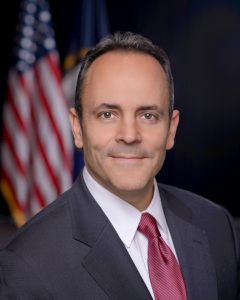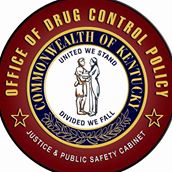 Attorney General Andy Beshear today filed suit against Pennsylvania-based pharmaceutical manufacturer Teva for allegedly promoting its fentanyl-based cancer drugs for “off-label” use in Kentucky, which directly contributed to the state’s addiction outbreak.
Attorney General Andy Beshear today filed suit against Pennsylvania-based pharmaceutical manufacturer Teva for allegedly promoting its fentanyl-based cancer drugs for “off-label” use in Kentucky, which directly contributed to the state’s addiction outbreak.
The lawsuit, filed in Fayette Circuit Court, claims Teva persuaded physicians to prescribe its drugs, Actiq and Fentora, to treat chronic pain despite the drugs being approved solely for breakthrough pain in cancer patients.
The lawsuit alleges Teva’s salesforce was instructed to target doctors who were not oncologists, including general practitioners. In one instance, a sales representative alleges that 99 percent of the doctors in her territory were pain specialists not oncologists who wrote prescriptions for off-label use.
Beshear said this allowed the company to grow its market in Kentucky while contributing to the state’s drug epidemic. He said Teva had the largest amount of opioids, per gram, sold in Kentucky over a nearly 10-year period.
“The actions by Teva to deceptively push highly-powerful fentanyl-based opioids into a state like Kentucky that’s ravaged by addiction is probably one of the most egregious acts we have seen from a pharmaceutical company that’s heartlessly focused on profits over our people,” Beshear said. “While Teva is predicting $19 billion in revenues this year, we are seeking to hold them accountable under Kentucky law by making them pay for the damages caused to our state and Kentucky families.”
Fentanyl is 50-100 times more potent than morphine and 50 times more potent than many forms of heroin.
Beshear said in Kentucky and the U.S., overdose deaths related to fentanyl now surpass deaths related to heroin.
According to a July 25, 2018 report released by the Kentucky Office of Drug Control Policy, fatal overdoses in Kentucky totaled 1,565 in 2017, which was an 11.5 percent increase over the previous year. Fentanyl was a factor in approximately 763 deaths and 52 percent of the toxicology cases, which is an increase of about 47 percent compared to 2016.
Beshear’s lawsuit claims Teva took steps to conceal its deceptive marketing and unlawful conduct by funding and working through unbranded marketing, third-party advocates and professional associations to promote opioid use.
According to the lawsuit, Teva sales representatives regularly omitted any discussion of addiction caused by long-term opioid use from their sales conversations with Kentucky prescribers, and despite having knowledge of suspicious prescribing, Teva failed to implement policies and procedures that would enable its sales representatives to report this conduct.
One of Teva’s drugs, Actiq, delivers fentanyl into the bloodstream via a lollipop lozenge. It’s other, Fentora, is an oral tablet that also dissolves in a patient’s mouth.
According to the lawsuit, the FDA expressly prohibited Teva from marketing Actiq for anything but breakthrough cancer pain, which is a sudden flare-up of pain. The FDA refused to approve Fentora for the treatment of chronic pain because of the potential harm, including the high risk of “serious and life-threatening adverse events” and abuse, which the agency said are greatest in non-cancer patients.
In 2008, the Department of Justice accused Cephalon, a Teva subsidiary, of promoting Actiq for uses the FDA had not approved. Cephalon settled the charges for $425 million. The federal government charged that Cephalon promoted Actiq to non-cancer patients for conditions such as “migraines, sickle-cell pain crises, injuries, and in anticipation of changing wound dressings or radiation therapy.”
“Teva has not changed its ways or corrected its past misconduct but instead is continuing to fuel our opioid crisis,” Beshear said.
Beshear said the opioid crisis is having a devastating effect on Kentucky’s workforce. Recent research has demonstrated that the Commonwealth’s high rate of opioid usage has reduced the workforce, created high turnover, increased employers’ costs to train new employees and caused an increase in employee thefts.
Today’s lawsuit is the eighth opioid related lawsuit Beshear has filed.
Beshear has sued three national opioid distributors, Pennsylvania-based AmerisourceBergen, Ohio-based Cardinal Health and San Francisco-based McKesson Corporation, which together are responsible for supplying 85 percent of opioids in Kentucky; distributor and retail pharmacy Walgreens; and pharmaceutical manufacturers Johnson and Johnson, Mallinckrodt, and Endo Pharmaceuticals.
A Franklin Circuit Judge ruled that he would not dismiss Beshear’s 2017 lawsuit against Endo. Beshear recently announced that his office has won fights to keep four of his current opioid lawsuits in Kentucky courts, and that Kentuckians can track the progress of each case by visiting ag.ky.gov.
Beshear is once again calling on lawmakers to create a permanent trust fund to battle addiction in Kentucky. He is working with Rep. Dennis Keene, of Wilder, on legislation that requires funds recovered by the Commonwealth from lawsuits, fines or settlements related to the drug epidemic to only be spent addressing the needs of Kentucky’s drug prevention educators, law enforcement and treatment providers.
Beshear has provided $8 million from a pharmaceutical settlement to 15 substance abuse treatment centers.
And he has launched the state’s first initiative to allow Kentuckians to safely dispose of opioid medications at home. The program has the potential to dispose of more than 2.2 million unused opioids and help to reduce the nearly 80 percent of heroin users who begin their addiction with prescription drugs.
 Attorney General Andy Beshear and West Virginia Attorney General Patrick Morrisey are calling on health insurance companies to assist in finding workable solutions to the nation’s opioid epidemic.
Attorney General Andy Beshear and West Virginia Attorney General Patrick Morrisey are calling on health insurance companies to assist in finding workable solutions to the nation’s opioid epidemic.
Beshear and Morrisey, who will officially make the announcement at 1:30 p.m. today in West Virginia, are joining with 36 other state attorneys general to press health insurance companies to adopt a financial incentive structure for the use of non-opioid pain management techniques when viable for chronic, non-cancer pain.
The AGs are reaching out to insurance companies to promote non-opioid pain management alternatives that may not be currently covered at the same level as prescription opioids.
“Nearly 80 percent of heroin users first become addicted through prescription pills,” Beshear said. “If we can reduce opioid prescriptions and use other forms of pain management treatment, we will slow or even reverse the rate of addiction.”
Beshear said the issue is not a Republican or Democratic issue, and thanks AG Morrisey for continuing his nonstop efforts to work with the Kentucky Office of Attorney General to find workable solutions to the opioid epidemic.
Kentucky, like West Virginia, is facing the challenge of “our lifetime” with its drug epidemic, Beshear said, who joined Morrisey and Ohio Attorney General Mike DeWine last year for an addiction summit in West Virginia.
“We have to ensure that financial incentives, or a lack thereof, for the provision of certain items and services do not contribute unintentionally to this deadly problem,” Morrisey said.
Insurance companies can play an important role in reducing opioid prescriptions and making it easier for patients to access other forms of pain management treatment, the AGs said.
“Simply asking providers to consider providing alternative treatments is impractical in the absence of a supporting incentive structure,” the AGs said. “All else being equal, providers will often favor those treatment options that are most likely to be compensated either by the government, an insurance provider or a patient paying out-of-pocket.”
The AGs want to create a dialogue with the entire insurance industry concerning its incentive structure along with state insurance commissioners in an effort to identify best practices.
Beshear is co-chair on the National Association of Attorneys General Substance Abuse Committee.
Beshear’s participation in this initiative is the latest effort in his ongoing work to address the opioid crisis in Kentucky.
In August, he launched the Kentucky Opioid Disposal Program, the state’s first initiative to allow Kentuckians to safely dispose of opioid medications at home. The program has the potential to dispose of more than 2.2 million unused opioids.
In June, Beshear announced that his office intends to file multiple lawsuits against drug manufacturers, distributors and retailers where there is evidence that they contributed to the opioid epidemic by illegally marketing and selling opioids to Kentuckians.
To support this litigation, Beshear issued a request for proposal (RFP) for legal services to assist the Commonwealth in multiple lawsuits and to ensure that Kentucky tax dollars are not used for the costs of the litigations.
The AG’s office previously settled a $24 million lawsuit with Purdue Pharma regarding OxyContin. Beshear’s office has provided $8 million from that settlement directly to 15 substance treatment centers across Kentucky.
From a different drug company settlement, the office dedicated $2 million to expand and enhance Rocket Docket programs that expedite drug cases, generate significant cost savings and allow select defendants rapid access to substance abuse treatment.
Beshear is currently working with local law enforcement and community leaders to host substance abuse awareness forums across the state. The office has also been instrumental in numerous drug related arrests, including working with federal authorities on arresting a fentanyl dealer whose drugs had killed several Kentuckians.
Bordering state AGs participating in this effort include Illinois, Indiana, Missouri, Virginia and West Virginia.
 Gov. Matt Bevin is urging all Kentuckians to help beat back the opioid epidemic with a new public awareness campaign that highlights the dangers of opioid abuse and offers information on drug treatment and naloxone.
Gov. Matt Bevin is urging all Kentuckians to help beat back the opioid epidemic with a new public awareness campaign that highlights the dangers of opioid abuse and offers information on drug treatment and naloxone.
The campaign, launching this week, combines web content with statewide advertising to drive home a simple message: “Don’t Let Them Die.” The theme encourages Kentuckians to recognize the inherent value of human life – even in the grip of addiction – and take proactive steps to help their friends, family and communities overcome this crisis.
One way all Kentuckians can help: Learn about the risk of opioid abuse and spread the word.
“We don’t have the luxury of pretending there isn’t a problem,” said Gov. Bevin. “Every life is worth saving. There is not a person we would not want to see redeemed and removed from this addiction, and it is up to all of us to work together and find solutions.”
Lethal overdoses claimed more than 1,400 lives in Kentucky last year, a 7.4 percent increase from 2015. Fentanyl, a synthetic opioid that is up to 50 times more potent than heroin, was a factor in 623 deaths, while heroin contributed to 456 deaths.
The highest number of fatalities occurred among people ages 35 to 44, followed by ages 45 to 54. Kentucky currently has the third highest overdose rate in the country, and a recent study showed that 80 percent of heroin users start with prescription opioids.
“Behind each number is a suffering soul and a wounded family that has often struggled with substance abuse for decades,” said Kentucky Justice Secretary John Tilley. “However, we also hear stories almost every day of hope and recovery. That’s why it’s essential that every Kentuckian joins this battle to preserve life. With the right support and resources, we know recovery is possible.”
As part of the campaign, radio and television ads that feature audio from a harrowing 911 call will begin airing statewide over the next week. The anguished voice on the phone belongs to Nikki Strunck, a mother from Richmond, Ky. who discovered her son, Brendan, dying from an overdose in January 2016.
While the initial ad seeks to raise awareness about the dangers of opioids and the human toll of addiction, future ads are expected to focus on resources and treatment. The 30-second spots were purchased through the Public Education Partnership Program, which is administered by the Kentucky Broadcasters Association.
Along with advertising, the governor’s office has established www.DontLetThemDie.com, a website with information about opioids, treatment and the overdose antidote, naloxone. Officials plan to continue updating the website as new initiatives are announced.
 In 2015, more than 225 Kentuckians died from a drug overdose with Opana in their blood.
In 2015, more than 225 Kentuckians died from a drug overdose with Opana in their blood.
Now that the makers of the opioid painkiller announced July 6 that it will no longer sell the drug, Attorney General Andy Beshear is calling the move a “first step” in fighting against what he believes is the single greatest threat to Kentucky – the state’s drug epidemic.
Beshear sent his concerns on the potential for abuse by Kentuckians on a reformulation of the drug, Opana ER (extended release), to the U.S. Food and Drug Administration (FDA) in February during an open comment period on the drug.
“The FDA previously determined the reformulated Opana ER can still be readily prepared for injection and can be crushed with common items for snorting,” Beshear said in his comments to the agency. “‘Snortable’ or injectable drugs have crippled Kentucky, ranging from the widespread abuse of Oxycontin to the return of heroin. Where the reformulation has merely been found to impede one of many means of abuse, approving labeling Opana ER as ‘abuse deterrent’ may mislead patients and providers.”
In his comments, Beshear said he was “encouraged that the agency is taking a hard look at the safety of this powerful drug.”
The FDA requested on June 8 that Endo Pharmaceuticals remove Opana ER from the market.
Beshear’s comments to the FDA on Opana ER is part of his ongoing efforts to address the opioid crisis in Kentucky.
“Opana ER has already taken the lives of Kentuckians,” Beshear said. “Louisvillian Emily Walden, whose son, T.J., died of an Opana ER overdose in 2012, has led the charge to have the reformulated drug removed from the market. By working hand-in-hand with dedicated Kentuckians like Emily, we can and will end our opioid epidemic.”
On June 28, Beshear announced that his office intends to file multiple lawsuits against drug manufacturers, distributors and retailers where there is evidence that they contributed to the opioid epidemic by illegally marketing and selling opioids to Kentuckians.
To support this litigation, Beshear issued a request for proposal (RFP) for legal services to assist the Commonwealth in multiple lawsuits and to ensure that Kentucky tax dollars are not used for the costs of the litigations.
Beshear is co-chair on the National Association of Attorneys General Substance Abuse Committee.
The AG’s office previously settled a $24 million lawsuit with Purdue Pharma regarding OxyContin. Beshear’s office has provided $8 million from that settlement directly to 15 substance treatment centers across Kentucky.
From a different drug company settlement, the office dedicated $2 million to expand and enhance Rocket Docket programs that expedite drug cases, generate significant cost savings and allow select defendants rapid access to substance abuse treatment.
Recently, Beshear joined a multistate lawsuit alleging the drugmaker of Suboxone, a drug used for treating opioid addiction, tried to monopolize the market.
Beshear is currently working with local law enforcement and community leaders to host substance abuse awareness forums across the state. The office has also been instrumental in numerous drug related arrests, including working with federal authorities on arresting a fentanyl dealer whose drugs had killed several Kentuckians.
“The abuse and diversion of Opana and other strong opioids is devastating the health of many of our Commonwealth’s citizens, and they, as well as our Medicaid and corrections departments, pay an enormous financial price in the attempt to treat this epidemic,” Beshear told the FDA. “It would benefit public health for the FDA to create and implement deadlines for the pharmaceutical industry to develop more robust abuse deterrent formulations for these high-dose opioids and to require that development before granting abuse deterrent labeling.”
 The nationwide opioid epidemic continued taking its lethal toll on the Commonwealth last year, driving up overdose deaths to unprecedented levels with an ever-stronger mix of fentanyl, heroin and prescription pills.
The nationwide opioid epidemic continued taking its lethal toll on the Commonwealth last year, driving up overdose deaths to unprecedented levels with an ever-stronger mix of fentanyl, heroin and prescription pills.
According to a report released by the Kentucky Office of Drug Control Policy, fatal overdoses totaled 1,404 in 2016, a 7.4 percent increase from the previous year. Of those cases, toxicology data was available for 1,330 deaths.
Fentanyl, an extremely potent opioid that is often blended with heroin and other drugs, contributed to nearly half of all fatalities during the year. It was a factor in 623 lethal overdoses, up from 459 in 2015. Heroin was involved in 456 deaths.
“Nearly every community in Kentucky experienced a fatal drug overdose last year— if that’s not a wake-up call, I don’t know what is,” said Gov. Matt Bevin. “We don’t have the luxury of pretending there isn’t a massive problem. The consequences of the opioid crisis are far-reaching, affecting every corner of our communities. We must stand united against the opioid scourge and work together to find solutions. Failure is not an option.”
The numbers are part of the 2016 Overdose Fatality Report, which was compiled with data from the Kentucky Medical Examiner’s Office, the Kentucky Injury Prevention & Research Center and the Kentucky Office of Vital Statistics. A copy of the full report is available here.
It shows that Louisville, Lexington and Northern Kentucky experienced the highest number of lethal overdoses, but nearly every community suffered fatalities. Leslie County had the highest number of deaths on a per capita basis, followed by Bell, Powell, Gallatin and Campbell counties.
Those most likely to lose their lives to a drug overdose were people between the ages of 35 and 44. More than 400 in that age group died in 2016.
“These are mothers and fathers, veterans, co-workers and friends,” said Kentucky Justice Secretary John Tilley. “We are in a daily battle to reach them before we lose them, and we must continue tapping every available resource to confront this problem with both force and compassion.”
Fentanyl, a Schedule II narcotic, began overtaking heroin in 2015 as the leading contributor to overdose deaths in Kentucky. The drug is 30 to 50 times more potent than heroin and can prove deadly at very low levels, according to the U.S. Drug Enforcement Administration (DEA).
At the same time, illicit drug cartels have been producing newer and more potent fentanyl analogues, which further increases the risk of death. Carfentanil, for instance, is approximately 100 times more potent than fentanyl, the DEA reports.
Van Ingram, executive director for the Kentucky Office of Drug Control Policy, said fentanyl is frequently mixed with heroin or pressed into a pill form, leaving many users unaware that they are ingesting the drug. That has escalated an already deadly crisis of opioid abuse that started more than a decade ago with prescription painkillers.
“Fentanyl’s impact is really unprecedented,” Ingram said. “Users have no way of knowing what drugs they are taking, and even the smallest amounts can trigger a lethal reaction. We’ve seen cases where a bad batch of drugs has led to dozens of overdoses in a single community overnight.”
Naloxone, a lifesaving antidote that can reverse an opioid overdose, is now widely available in many Kentucky communities; however, it is not always effective against fentanyl, Ingram said. Emergency responders are seeing cases that require several doses of naloxone to revive the victim.
“Government, healthcare, law enforcement – we are all working furiously to save lives,” Ingram said. “But even the best policies and medications have limits. That’s why it is critical that we continue taking a multi-faceted approach, and every Kentuckian can help by spreading the word about the dangers of these drugs.”
Kentucky is a national leader in drug control policy, and the Bevin Administration has worked with the Kentucky General Assembly over the past two years to ramp up the fight against opioids.
This year, the legislature passed House Bill 333, which gives the state flexibility to schedule new fentanyl analogues as they arrive on the streets. It also limits opioid prescriptions for acute pain to a three-day supply unless a doctor provides written justification in medical records for a larger amount.
In 2016, Gov. Bevin and the General Assembly also increased funding for anti-drug efforts in the state budget, allocating $15.7 million to combat opioids in the current fiscal year, up from $10 million the previous year. Another $16.3 million has been allocated for fiscal year 2018.
Among other significant findings in today’s report:
• Jefferson County had the most overdose deaths of any county with 364, up from 268 in the 2015 report. It also had the largest year-to-year increase in overdose fatalities.
• The largest decrease occurred in Kenton County, which had 22 fewer fatalities in 2016 compared to the previous year. Other counties with significant declines include Bell County, which declined by 10, and Knox County, which declined by 8.
The top five counties for heroin-related overdose deaths, using data from the Kentucky Medical Examiner and coroner reports, were:
- Jefferson County – 122
- Fayette County – 48
- Kenton County – 20
- Campbell County – 17
- Boone County – 12
The top five counties for overdose deaths by county, per capita, were:
- Leslie County – 66.25
- Bell County – 58.53
- Powell County – 56.51
- Gallatin County – 56.19
- Campbell County – 52.05
The top five counties for fentanyl-related deaths were:
- Jefferson County – 182
- Fayette County – 59
- Kenton County – 26
- Boone County – 25
- Campbell County – 21
The top five counties for deaths related to heroin and fentanyl in combination were:
- Jefferson County – 59
- Campbell County – 21
- Fayette County – 20
- Boone County – 12
- Kenton County – 11
 Weather
Weather Traffic
Traffic @LouisvilleDispatch
@LouisvilleDispatch @LouisvilleDisp
@LouisvilleDisp Subscribe
Subscribe